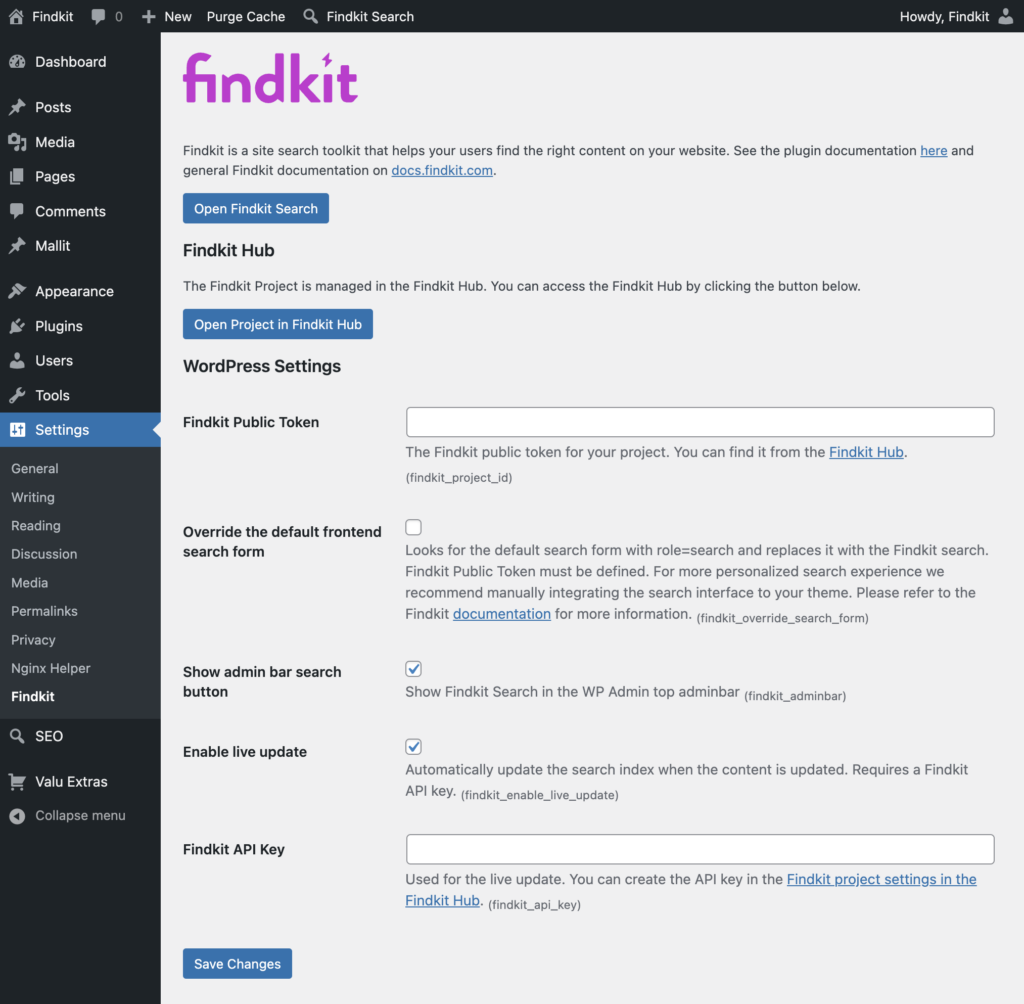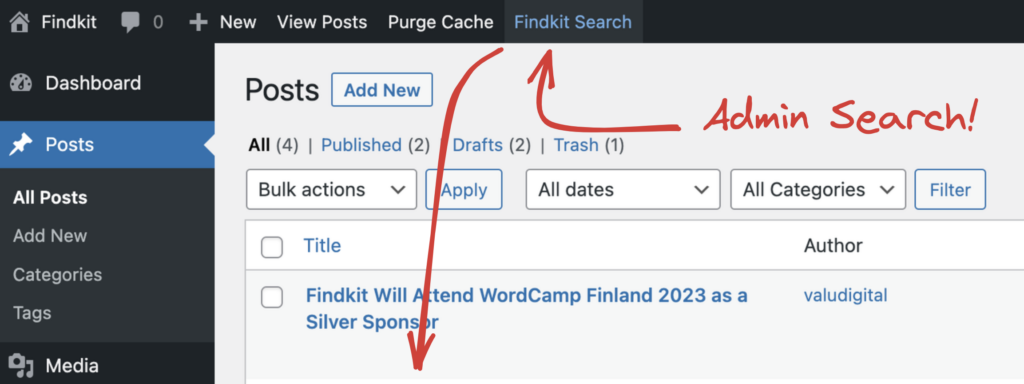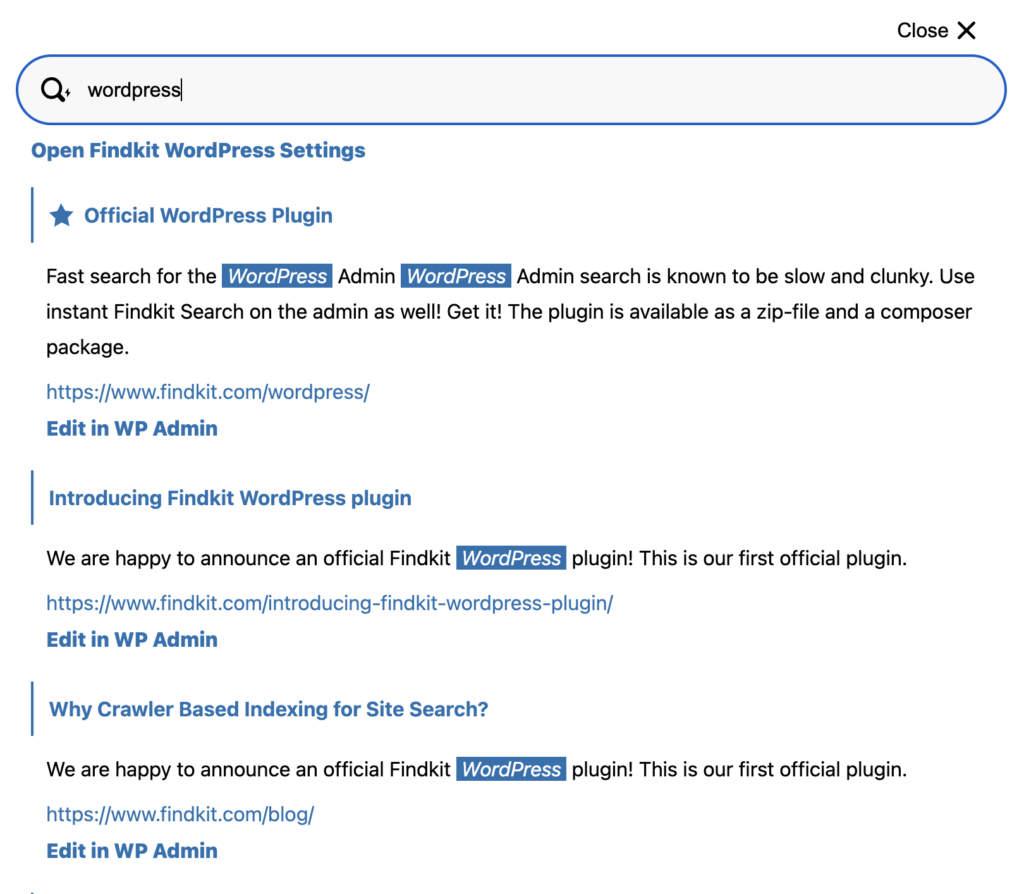Findkit is a cloud-based search engine with an official WordPress plugin. Findkit uses a crawler based indexer which can index WordPress multisite sites into a single search index. The search interface can be embedded to WordPress without coding using the Gutenberg Blocks provided by the plugin or with our open-source the Findkit UI library.
Findkit can also index non-wordpress sites into the same same index for unified search experience across a network of different websites.
Features

The plugin adds following features on top of the standalone features:
- Real-time index updates
- Expose page metadata and tags to the Findkit Crawler
- Pin search results
- Easy Findkit UI embbeding with Gutenberg Blocks
- Private search with JWT authentication
- Fast search for the WordPress Admin
Real-time index updates
The plugin can automatically send recrawl requests to the Findkit Crawler for the individual pages as they are edited meaning the search index is always kept up to date without having to wait for the scheduled crawl to start. Findkit runs the recrawls within few seconds when a request is sent.
Metadata and tags
Metadata includes page title, language, created/modified dates and tags. These are used to improve search relevancy and enables developers to filter and rescore the search results.
For example with the created/modified dates it is possible to boost newer pages over older ones using decay filters.
Public taxonomies are exposed as tags which can be used to filter the results using Findkit Tag Queries.
Pin search results
Pin search results straight from Gutenberg using superwords.

Gutenberg Blocks
Integrate with full site editing without coding using our Gutenberg Blocks!

Private search with JWT authentication
Making private website like an intranet or extranet? Make your search private too with JWT. The plugin takes care of generating the JWT tokens and passing them to the search requests. See the JWT-documentation.
Fast search for the WordPress Admin
WordPress Admin search is known to be slow and clunky. Use instant Findkit Search on the admin as well!


Get it!
The plugin is also available as a composer package. The source code is on Github.
